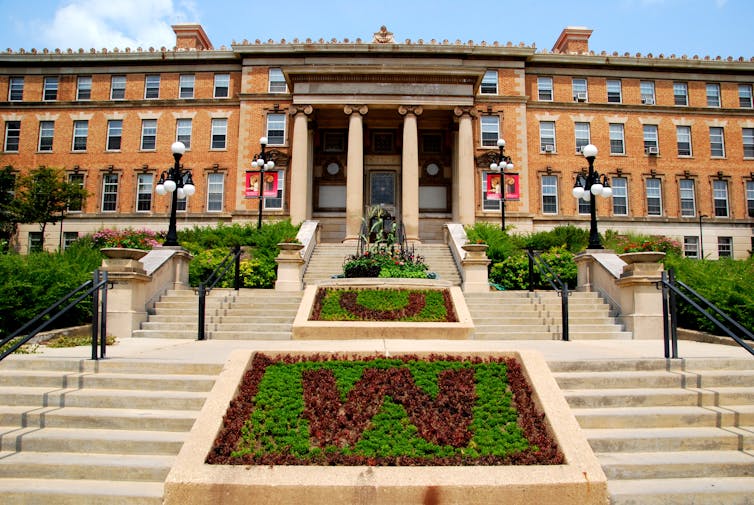
Shutterstock
Buried within Ontario’s 2019 budget is a drastic change to how the province’s publicly funded universities and colleges will receive support.
Though Ontario’s post-secondary institutions are some of the most accessible in the world, the 2019 budget indicates that by 2024-2025, Ontario colleges and universities will receive 60 per cent of their public funding through yet-to-be determined performance metrics oriented to provincial workforce demands.
The budget makes Premier Doug Ford’s position clear: Ontario public education should serve workforce needs. It suggests public funding has no business supporting research or academic programs that do not have immediate commercial value to Ontario employers.
Though the Ford government’s budget marks a turn for Canadian universities, the workforce model of university education in conservative politics is nothing new. In the United States, proponents have aggressively rejected the value of a humanistic education. Their policies, however, have been wildly unpopular. The state of Wisconsin is perhaps the best example of this.
In 2015, Scott Walker, then the Republican governor of Wisconsin, put forth a budget proposal similar to the Ontario government’s. Walker’s 2015 budget proposed to change the University of Wisconsin’s influential, century-old public service mission statement known as the Wisconsin Idea.
Universities should help their communities
In the early 20th century, the Wisconsin Idea was the philosophy that university expertise should improve the quality of life for state residents. Rooted in the social gospel and the modernization of agriculture, it was perhaps best captured by the univerity’s chancellor Charles Van Hise in 1905: “I shall never be content until the beneficent influence of the University reaches every family of the state.”
The Wisconsin Idea brought the university into local communities. Researchers investigated major issues affecting ordinary people. This included the cost of living, public health and sanitation, the impact of powerful private utility companies, the power of massive corporate monopolies and the pernicious impact of growing wealth inequality. All concerns that weigh heavily on us today.
The Wisconsin Idea made the state a “laboratory for democracy” by bringing research into policy. University findings shaped major reforms, much of which became model legislation in Canada and the United States.
Wisconsin research informed the creation of social programs such as workers’ compensation, utility regulation, the development of modern public health departments, the direct election of senators and the creation of a state income tax as well.
This commitment to public service grew over the 20th century. In 1971, state legislators wrote the Wisconsin Idea into law.
The Wisconsin Idea now directed the university to “develop human resources, to discover and disseminate knowledge” and to extend this “knowledge and its application beyond the boundaries of its campuses and to serve and stimulate society by developing in students heightened intellectual, cultural and humane sensitivities, scientific, professional and technological expertise and a sense of purpose.”
‘Search for truth’
The goal would be to foster “methods of instruction, research, extended training and public service designed to educate people and improve the human condition. Basic to every purpose of the system is the search for truth.”
In 2015, Walker proposed changes to the Wisconsin Idea. He cut from the law the “search for truth” and that universities must work to “improve the human condition.” In their place, Walker added a new goal. Wisconsin’s public university system should work to “meet the state’s workforce needs.”
The Ford government, like Walker’s 2015 budget proposal, has proposed similar changes. The 2019 budget suggests higher education is merely a means to an end for satisfying workforce demands.
But the Ontario proposal fails to recognize the role public education plays in not just growing our economy, but in fostering our collective well-being across the province as well — whether that’s through public health programming, examining wealth inequality or training future elementary and high school teachers.
Ultimately, Walker failed to change the Wisconsin Idea. His proposal was resoundingly rejected. Wisconsinites recognized the value of the Wisconsin Idea, its historical importance to civic engagement and the many ways it had benefited the state.
Walker backed down
Following a public outcry, Walker walked back his proposal.
He claimed the edits to the Wisconsin Idea were merely drafting errors. A year later, public information requests and a subsequent ruling by a Dane County judge proved otherwise. They forced the governor’s office to disclose documents confirming Walker himself had demanded the change, even after the objection of top administrators at the university.
Like citizens of Wisconsin in 2015, Ontario residents should be wary of the Ford government’s budget proposal.
Higher education trains students as critical thinkers and as citizens, not just as a future workforce designed to meet market needs.
Humanistic education, the arts and the sciences in the name of public service are vital to the collective improvement and health of our public life. Wisconsin voters knew it; Ontario voters should too.![]()
Dan Guadagnolo, PhD Candidate, History, University of Wisconsin-Madison
This article is republished from The Conversation under a Creative Commons license. Read the original article.










